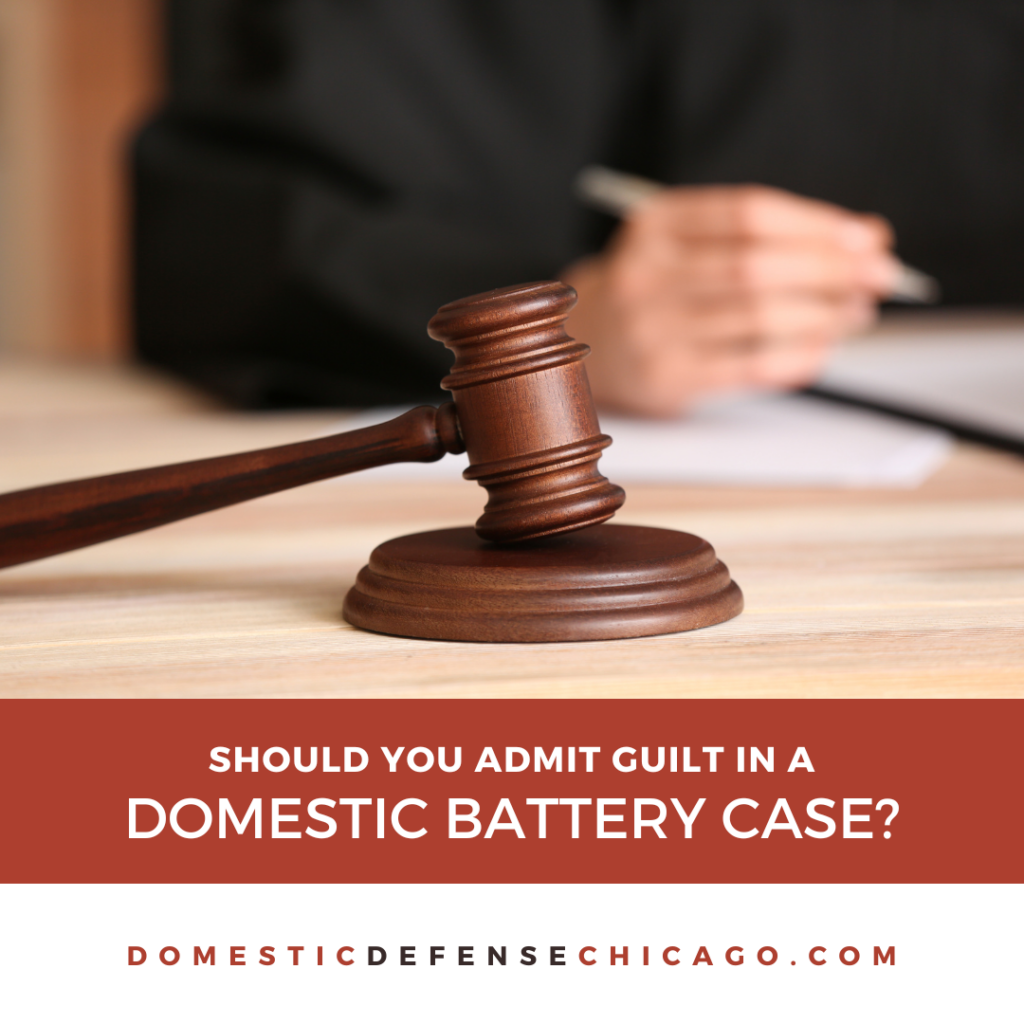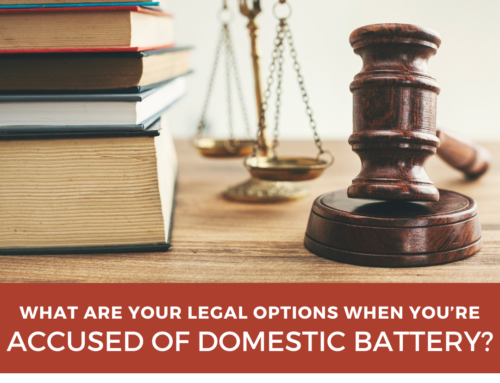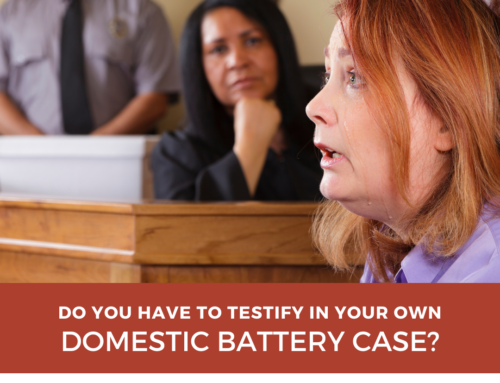Facing a charge of domestic battery is a serious matter. Deciding whether to admit guilt can have significant consequences. It is essential to follow your lawyer’s advice to ensure that you make the best decision for your situation.
Should You Admit Guilt in a Domestic Battery Case?
You should only admit guilt in a domestic battery case if your lawyer advises you to do so. Many people plead not guilty, forcing the prosecution to prove their guilt beyond a reasonable doubt. This guide explains the following:
- Pleading not guilty
- Understanding plea deals
- What happens if you plead guilty
Here’s a closer look at each.
Pleading Not Guilty
Pleading not guilty allows you to contest the charges and requires the prosecution to prove your guilt beyond a reasonable doubt. By pleading not guilty, you maintain your right to a fair trial, where you can present evidence, cross-examine witnesses, and argue your defense. Many people choose this plea because it provides an opportunity to challenge the prosecution’s case and potentially avoid a conviction. Your lawyer will help you gather evidence, identify witnesses, and build a strong defense strategy to contest the charges.
Related: Legal information on domestic battery charges
Understanding Plea Deals
A plea deal, or plea bargain, involves agreeing to plead guilty to a lesser charge or to the original charge in exchange for reduced penalties. Plea deals can be beneficial because they often result in lighter sentences or fewer charges. However, they are not available in every case and depend on the prosecutor’s willingness to negotiate. Your lawyer will negotiate with the prosecutor on your behalf to seek the best possible terms for a plea deal. It’s essential to understand that accepting a plea deal means you will have a criminal record, and you must carefully consider the long-term implications.
What Happens If You Plead Guilty
If you plead guilty, you admit to committing the crime. This plea results in a conviction and moves your case directly to sentencing. Pleading guilty can be part of a plea deal or a decision you make after discussing the case with your lawyer. When you plead guilty, you face the penalties associated with a domestic battery conviction, which can include jail time, fines, probation, mandatory counseling, and a permanent criminal record. Your lawyer will help you understand the consequences and guide you through the sentencing process.
Related: Can a domestic battery conviction prevent you from seeing your kids?
FAQ About Admitting Guilt in Domestic Battery Cases
Check out these commonly asked questions about admitting guilt in domestic battery cases in Illinois. If you don’t see your question here, please call our office and we’ll find you the answers you need.
Should I Admit Guilt in a Domestic Battery Case?
You should only admit guilt if your lawyer advises you to do so. Pleading not guilty allows you to challenge the charges and requires the prosecution to prove your guilt.
Related: What happens if you violate an order of protection?
What Is a Plea Deal?
A plea deal involves pleading guilty to a lesser charge or the original charge in exchange for reduced penalties. Your lawyer will negotiate the terms with the prosecutor.
Are Plea Deals Available in Every Case?
No, plea deals depend on the prosecutor’s willingness to negotiate and the specifics of your case. Your lawyer will determine if a plea deal is a viable option for you.
What Happens If I Plead Guilty?
If you plead guilty, you admit to the crime and are convicted. You will face sentencing, which can include jail time, fines, probation, mandatory counseling, and a permanent criminal record.
Related: ILDVA
How Can a Lawyer Help With My Decision to Plead?
A lawyer can help by evaluating your case, explaining your options, negotiating plea deals, and guiding you through the legal process. They will work to protect your rights and get you the best possible outcome.
Do You Need to Talk to an Attorney About Domestic Battery Defense?
If you need to talk to a domestic battery defense attorney in Illinois, we’re here to help. Call us at 847-920-4540 now – we’ll be happy to give you a free consultation and talk to you about your options.
Get help now!







Leave A Comment
You must be logged in to post a comment.